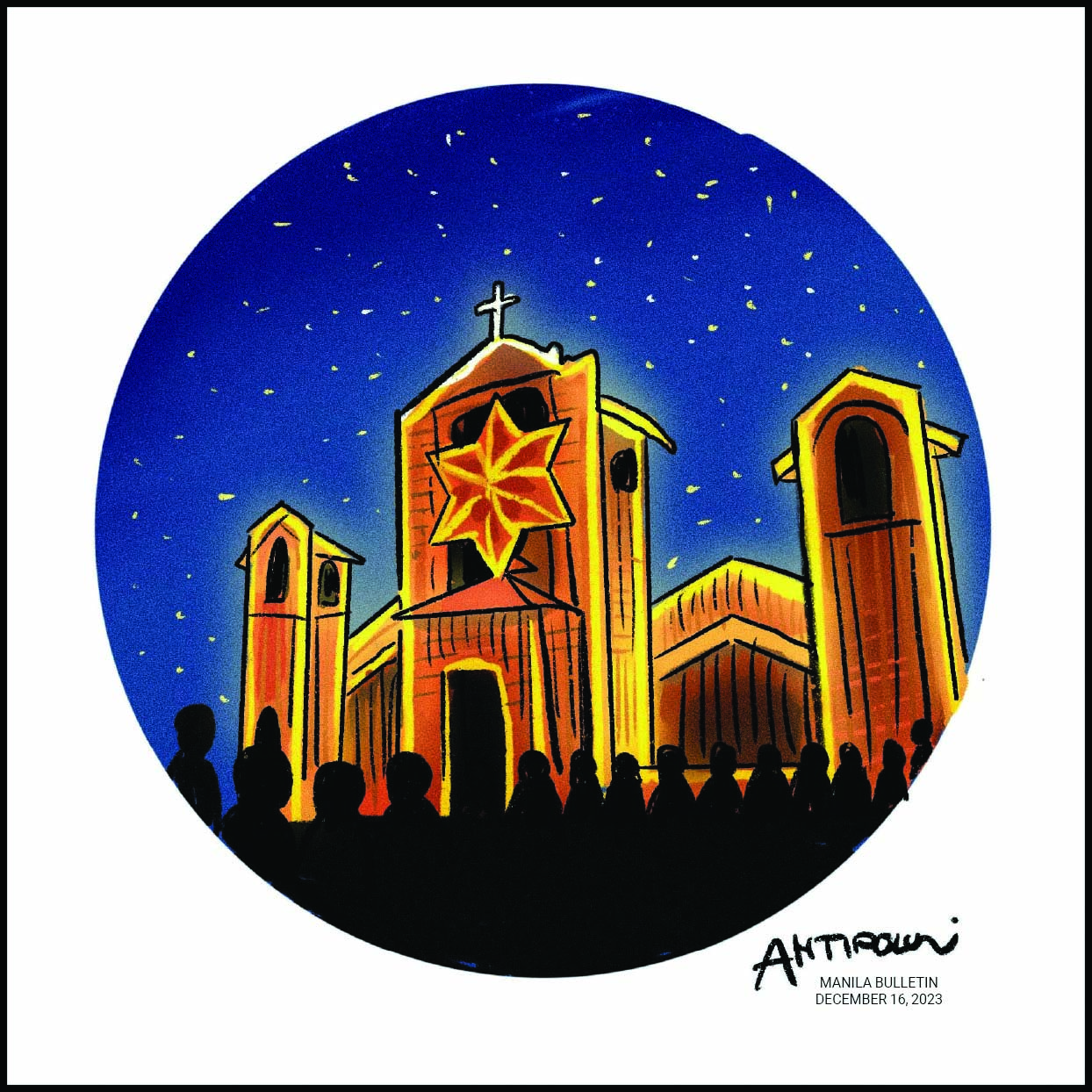
Starting early morning of Dec. 16 of every year, thousands of Filipinos flock to Catholic churches around the country to attend Simbang Gabi, Holy Mass celebrated around 4 or 5 o’clock in the morning (or at 9 in the evening). It is a cherished tradition that has been practiced for centuries, a novena that culminates on Christmas Eve.
The Simbang Gabi tradition started in the 16th century, when missionaries from Mexico celebrated early morning Holy Masses to prepare for Christmas Day, the birth of Jesus Christ. Since most of the locals at that time were working in the fields or as fishermen, it was important to have masses scheduled at the early hours of the day before they go to work. Hence, the custom of having the Sambang Gabi at the crack of dawn.
More than just a custom, the practice of attending mass for nine days reveals how faith continues to play a strong role in the lives of many Pinoys. Whether they attend the Simbang Gabi in the hope to have a prayer-petition or even a wish granted after completing the nine days, the practice is done out of devotion and faith.
The nine consecutive days of masses are celebrated as part of Advent, which is the period of preparations preceding the Christmas season in the liturgical calendar of the Catholic Church.
Indeed, for many Catholic Filipinos, preparations for Christmas would not be the same without attending—and completing —the nine days of the Simbang Gabi. Many go out of their way, braving the traffic after work hours to attend the anticipated masses in the evenings of the Simbang Gabi.
Others wake up early, giving up hours of precious sleep, to catch the morning masses before heading to their places of work. In both cases, attending the Simbang Gabi entails sacrifice, which for those with a deep understanding of Christianity would associate with the sacrifice made by Jesus Christ, the Son of God.
Simbang Gabi, as it continues today, is designed to be a family or community affair. Today, Catholic churches at dawn have become places where families and friends gather to worship and renew bonds with the community. In the spirit of Christmas, neighbors become friends and friends become family. After the mass, it has become part of the tradition to linger and talk over coffee or thick chocolate drink and bibingka, puto bumbong, or pandesal – the comfort of comfort food completing the Simbang Gabi ritual.
Thus, starting this morning in thousands of homes, the preparation for the birth of Jesus Christ began with family members waking up early to continue the tradition of Simbang Gabi.
As a popular Christmas carol says: “Simbang Gabi, simula ng Pasko sa puso ng bawat Pilipino.”
May your home be the place where the spirit of Christmas starts! May it be the place where the preparation for the birth of Christ is a cherished part of the tradition of giving and sharing.